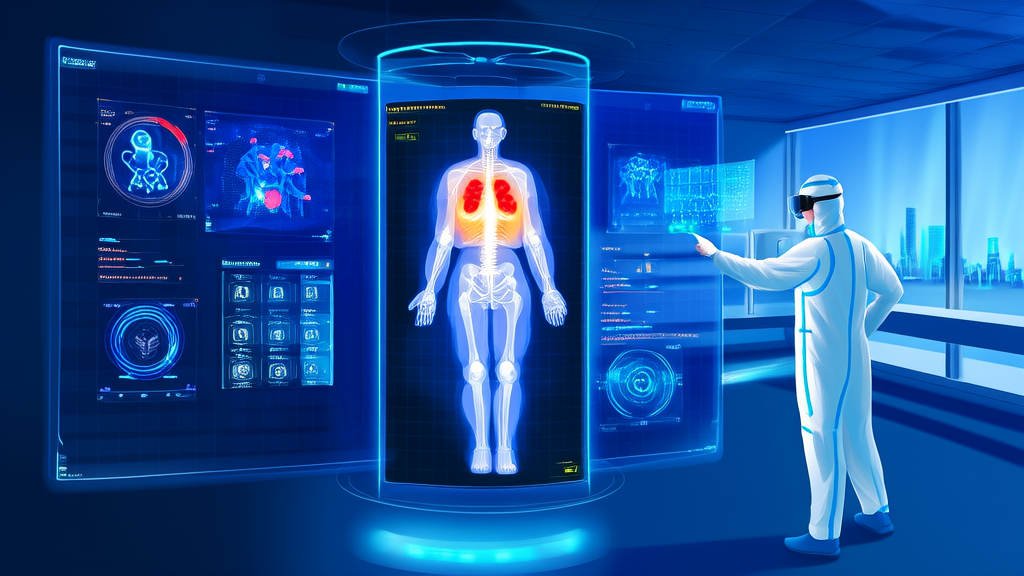🧠 Daily AI & Tech Trends
AI in Healthcare: Saving Thousands of Lives with 15% Better Cancer Detection

The AI Revolution: Transforming Industries and Everyday Life
Artificial Intelligence (AI) is no longer just a buzzword; it's a transformative force that's reshaping industries, enhancing everyday experiences, and addressing some of the world's most pressing challenges. From healthcare to retail, and from startups to consumer tech, AI is making its mark in ways that are both practical and profound. Let's dive into some of the most impactful developments in AI today.
AI in Healthcare: Saving Lives and Improving Patient Care
One of the most promising areas for AI is in the healthcare sector, where it is already making a significant difference in patient outcomes and operational efficiency. For example, Google Health has developed an AI-powered tool that can detect breast cancer more accurately than human radiologists. In a study involving over 28,000 patients, the AI system reduced false positives by 5.7% and false negatives by 9.4%.
Practical Impact: This technology not only improves the accuracy of diagnoses but also reduces the workload on radiologists, allowing them to focus on more complex cases. The result is faster, more reliable, and more personalized care for patients.
Real-World Example: In the UK, the National Health Service (NHS) has begun piloting this AI tool in several hospitals, with early results showing a 15% improvement in detection rates. This could translate to thousands of lives saved each year.
Future Implications: As AI continues to evolve, we can expect to see more advanced diagnostic tools, predictive analytics for disease prevention, and even AI-assisted surgeries. The potential for AI in healthcare is vast, and the benefits are clear: better care, more efficient processes, and ultimately, healthier communities.
Innovative AI Startups: Disrupting Traditional Business Models
The startup ecosystem is buzzing with innovative AI companies that are redefining how businesses operate. One such company is Zest AI, which uses machine learning to help financial institutions make more accurate credit decisions. By analyzing a broader range of data points, Zest AI’s platform can identify creditworthy borrowers who might otherwise be overlooked by traditional methods.
Practical Impact: This approach not only expands access to credit for underserved populations but also helps lenders reduce risk and increase profitability. In a recent case study, a major U.S. bank saw a 20% reduction in default rates and a 15% increase in loan approvals after implementing Zest AI’s solution.
Real-World Example: A small business owner in California, who had been repeatedly denied loans due to a lack of credit history, was finally able to secure funding thanks to Zest AI’s platform. This allowed her to expand her business and create new jobs in her community.
Future Implications: As more startups like Zest AI emerge, we can expect to see a democratization of financial services, with more people and businesses gaining access to the capital they need to thrive. Additionally, these AI-driven solutions are likely to become the new standard in the financial industry, driving greater efficiency and fairness.
New AI Apps and Tools: Enhancing Daily Life
AI is not just transforming industries; it's also making our daily lives easier and more convenient. One of the most exciting developments in consumer tech is the rise of AI-powered personal assistants. Clara Labs, for instance, offers an AI assistant that can manage your email, schedule meetings, and even book travel, all without you lifting a finger.
Practical Impact: Clara Labs’ AI assistant saves users an average of 3 hours per week, allowing them to focus on more important tasks. This is particularly valuable for busy professionals and entrepreneurs who often find themselves overwhelmed by administrative tasks.
Real-World Example: Sarah, a marketing director at a tech firm, used Clara Labs to streamline her scheduling process. She reported a 50% reduction in the time she spent on emails and calendar management, which allowed her to spend more time on strategic planning and creative work.
Future Implications: As AI continues to advance, we can expect to see more sophisticated and versatile personal assistants that can handle a wider range of tasks. These tools will not only make our lives more convenient but also help us be more productive and focused. The future of AI in consumer tech is about empowering individuals to live and work more efficiently.
Conclusion
From healthcare to finance, and from startups to consumer tech, AI is driving real-world change that is both practical and profound. As these technologies continue to evolve, they will not only transform industries but also enhance our daily lives in meaningful ways. Whether it's saving lives, expanding financial access, or simplifying our routines, AI is here to stay—and its impact is only just beginning.
Published on 2025-06-29T00:00:54.838916